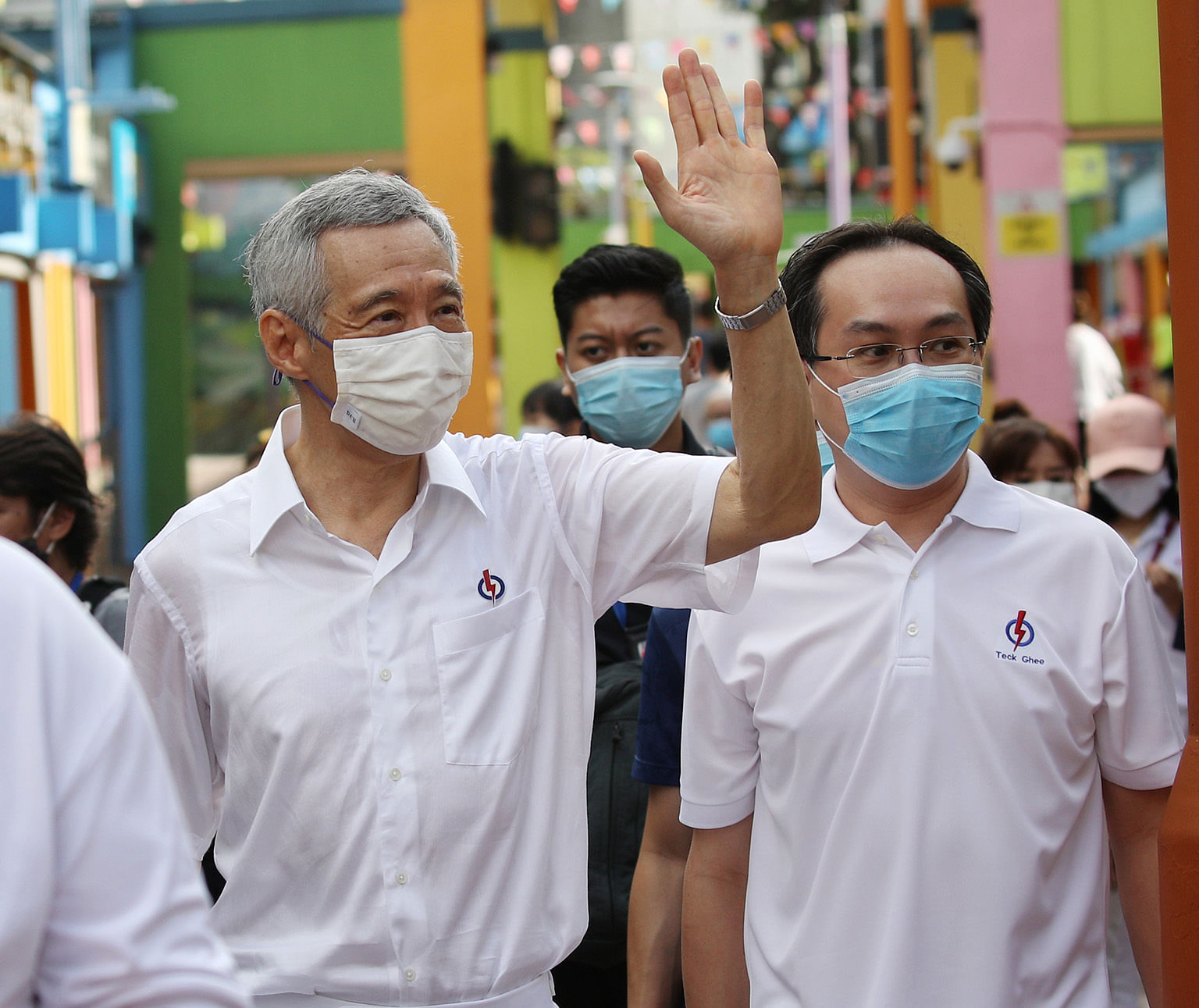On July 10, the People's Action Party (PAP) won 83 out of 93 seats and secured 61.2 per cent of the popular vote in the 2020 General Election. In any democracy, such an outcome would be regarded as outstanding. It is important to remind ourselves that Singapore is a democracy and not some other form of government.
EXTERNAL VIEW
I am quite shocked by the comments of some foreign observers. Professor Michael Barr from Flinders University in Australia described the result as a "disaster" for the PAP. Professor Bridget Welsh from the University of Nottingham Malaysia and National Taiwan University described the outcome as a "humiliating defeat" for the PAP.
Are these fair assessments?
Let's compare the PAP's electoral performance to those of the winning parties in Australia, the United Kingdom and India.
In the 2019 Australian federal election, Prime Minister Scott Morrison's coalition won 77 out of 151 seats and secured 41 per cent of the popular vote.
In the 2019 general election in the UK, the Conservative Party won 365 out of 650 seats and secured 43.6 per cent of the popular vote.
In the 2019 Indian general election, the Bharatiya Janata Party won 303 out of 542 seats and 37 per cent of the popular vote.
VICTORY FOR PAP AND WP
When we compare the PAP's electoral performance to those of the winning parties in these three countries, any fair-minded person would conclude that it was an outstanding victory. It was certainly not a "disaster" or a "humiliating defeat".
At the same time, the outcome of the election was a victory for the Workers' Party (WP). There was a doubt, before the election, whether it would be able to retain its seat in Hougang SMC and its five seats in Aljunied GRC. WP not only retained those six seats, and with increased majorities, but it also won a four-member group representation constituency, Sengkang, defeating three PAP office-holders on the opposing slate.


LEADER OF THE OPPOSITION
I applaud Prime Minister Lee Hsien Loong's decision to appoint WP chief Pritam Singh as the official Leader of the Opposition. As Leader of the Opposition, Mr Singh will be given staff support and resources to carry out his responsibilities, PM Lee has said, although it is not clear what level of support he will be given and whether he will be paid a salary. In Britain, the leader of the opposition draws a salary equivalent to that of a Cabinet minister.
By appointing Mr Singh as the Leader of the Opposition, PM Lee is acknowledging that the WP is here to stay and is likely to grow stronger in the coming years.
I agree with Straits Times Opinion editor Chua Mui Hoong's comment that we may be seeing the emergence of a two-party state in Singapore. (July 11, "A result that could please voters from both sides".) She wrote that the election result showed that "a two-party system in its infancy is taking shape, as the WP now has the clout to attract good candidates, run a good campaign and put up alternative policy proposals. It will be tested in town council and constituency management next".
I also agree with Singapore Institute of International Affairs chairman Simon Tay's comment that the correct reply to the question of who won the election is that Singapore won the election.
On his Facebook page, Associate Professor Tay posted: "If Singaporeans want to signal that we have concerns but are not panicked, that we have trust in a PAP government but not blind faith, and that we will want diverse perspectives and voices of hope to be heard, even as we listen to our leaders in responding to this crisis, our message was sent.
"Who won the 2020 General Election? Singapore won."
TIMING OF THE ELECTION
Singapore is in the midst of two crises: a health crisis and an economic crisis. The conventional wisdom is that an election during a crisis will benefit the incumbent. Why didn't the PAP benefit more from the crisis?
I think the reason is that many voters felt that holding the election in the midst of the Covid-19 pandemic was too opportunistic. Many doctors had feared that it could lead to a second surge of the virus outbreak.
TAKE THE HIGH ROAD
I think the electorate was sending several messages to the political parties. One message was to urge the parties to take the high road and not the low road.
The second message was for them to focus on the issues instead of attacking their opponents. Character assassination is frowned upon by the electorate.
For this reason, the following attacks were not well received:
• An attempt to use local playwright Alfian Sa'at as a stick to beat Mr Singh.
• An attack on Ms Raeesah Khan, a young WP candidate for Sengkang GRC, for her social media posts on race issues.
• An attempt to brand Singapore Democratic Party (SDP) chief and Bukit Batok SMC candidate Chee Soon Juan as a liar.
• The use of Pofma (Protection from Online Falsehoods and Manipulation Act) over statements made by SDP chairman and Bukit Panjang SMC candidate Paul Tambyah.
INTERNET ELECTION
This is Singapore's first Internet election. Because of Covid-19, physical rallies were not possible. Political parties concentrated their activities on home visits, meeting voters at hawker centres, and campaigning online via e-rallies and virtual talk shows.
My impression is that all the parties did a good job using the Internet to connect with voters and to disseminate their messages. The PAP and WP were particularly effective in this respect.
WOMEN POWER
A wonderful aspect of the 2020 election was the large number of women candidates - 39 in all.
It is also significant that the PAP women candidates in single-member constituencies, such as Dr Amy Khor, Ms Tin Pei Ling, Ms Sun Xueling and Ms Grace Fu, won their seats by large majorities.
I am very pleased to see more women joining politics and entering Parliament. We need more women in Parliament and in the Cabinet. My dream is that one day, Singapore will have a woman prime minister.
SENGKANG GRC
WP's victory in Sengkang GRC was a big surprise. It brings back memories of the loss of Aljunied GRC by the PAP to the WP in 2011.
How did the young WP team of Ms He Ting Ru, Associate Professor Jamus Lim, Mr Louis Chua and Ms Raeesah succeed in defeating the older PAP team, which included three office-holders - Mr Ng Chee Meng, Dr Lam Pin Min and Mr Amrin Amin?
Mr Ng as labour chief was a Minister in the Prime Minister's Office, Dr Lam was Senior Minister of State for Health and Transport, and Mr Amrin was Senior Parliamentary Secretary for Home Affairs and Health.
I don't know the answer. Some experts think that it was due to the special character of the constituency, with its higher percentage of younger voters, and to the star power of the WP candidate, Prof Lim. Others think the PAP's strong criticism of Ms Raeesah swung young voters over in a sympathy vote.
Sengkang GRC is a new constituency carved out of previous wards. Most of its voters live in Housing Board flats and it is a constituency with many young voters and young families. Do young voters have a different world view and aspirations than older voters?
I think the answer is yes. Young voters want the Government to be more consultative and less paternalistic. They are more liberal and accepting of alternative views and lifestyles. They are less race-conscious and do not agree that Singapore is not ready for a non-Chinese prime minister.
Young voters are also more socially conscious and want to see a radical reduction of poverty and inequality. They want a fairer Singapore. They are more environmentally conscious and want Singapore to grow greener.
They have sent several messages to the PAP Government with the vote and I sincerely hope the PAP is hearing them. I hope the Government will consider them with an open mind and not brush them aside.
In conclusion, two things bear repeating.
First, the outcome of the 2020 election was a victory for the PAP. It was not a disaster or a humiliating defeat.
Second, the WP has made a major breakthrough by retaining Hougang SMC and Aljunied GRC, and winning Sengkang GRC. It is now recognised as a credible opposition, and Singaporeans will expect it to oppose the Government in areas where it disagrees but always be loyal to Singapore.
• Professor Tommy Koh is rector of Tembusu College, National University of Singapore.

